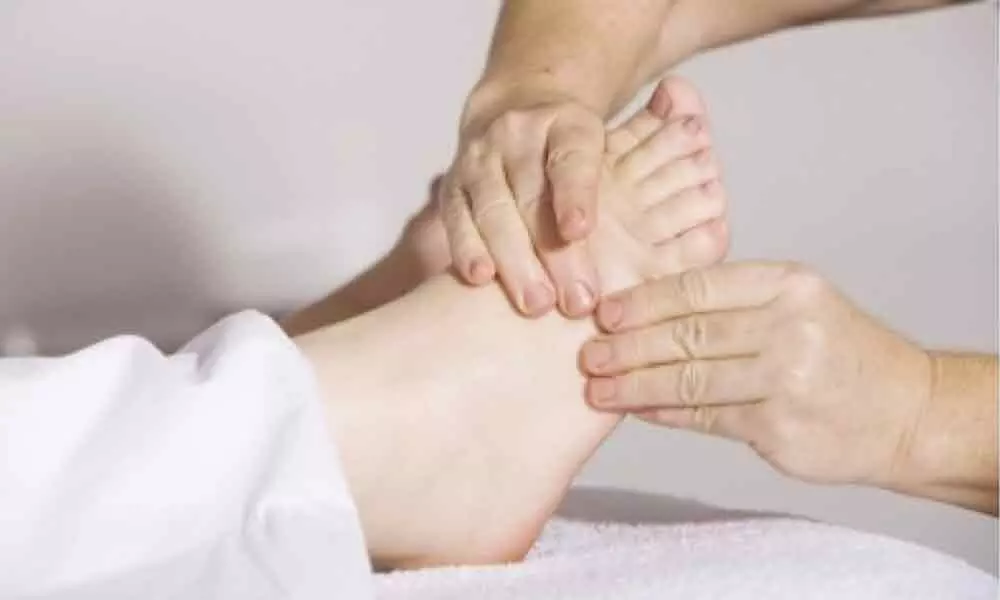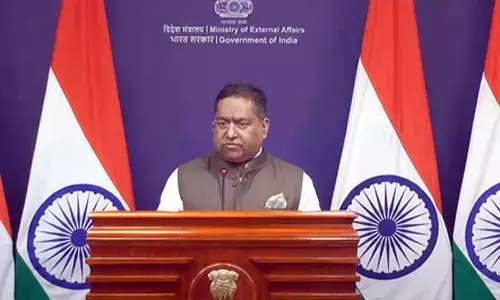Had a hectic week? Just 10 minutes of massage will relax you

Representational Pic
If you have had a tiring week, just 10 minutes of simple massage at home can do wonders to rejuvenate your mind and body, suggests a new research
London: If you have had a tiring week, just 10 minutes of simple massage at home can do wonders to rejuvenate your mind and body, suggests a new research. All you need to do is find someone to do that for you. Even ten minutes of simple rest increases relaxation, albeit to a lesser degree than massage, showed the research published in the journal Scientific Reports.
This study indicates that massage is an easy-to-apply intervention that can boost the body's principal engine for relaxation - the parasympathetic nervous system (PNS) - and also lead to a reduction in perceived mental stress. The discovery that massage is effective on the level of both psychology and physiology via the PNS may pave the way for future studies on understanding the role of relaxation on stress.
"We are very encouraged by the findings that short periods of dis-engagement are enough to relax not just the mind but also the body," said study first author Maria Meier from the University of Konstanz in Germany.
"You don't need a professional treatment in order to relax. Having somebody gently stroke your shoulders, or even just resting your head on the table for ten minutes, is an effective way to boost your body's physiological engine of relaxation." Stress is known to have negative consequences for health and disease.
However, our bodies have an inbuilt regenerative system, the PNS, to ward off stress during times of threat. Launching a relaxation response is thus key to protecting our health and restoring balance in our body. Massage has been used to improve relaxation, yet no systematic approach exists to robustly confirm its effect on the PNS and whether or not this could be used as rehabilitation for patients suffering from stress-related disease.
For the current study, the researchers developed a standardised approach for testing if tactile stimulation could improve mental and physical relaxation. They applied two different ten-minute massages on human subjects in the laboratory to test.
A head-and-neck massage was designed to actively stimulate the PNS by applying moderate pressure on the vagus nerve, which is the largest nerve running to the PNS. Then a neck-and-shoulder massage with soft stroking movements was designed to examine whether just touch can also be relaxing. Finally, a control group of participants sitting quietly at a table was tested for the effect of rest without tactile stimulation.
Physiological relaxation was gauged by monitoring the heart rate of participants and measuring heart rate variability (HRV), which indicates how flexibly the PNS can respond to changes in the environment.
The higher the heart rate variability, the more relaxed is the body. Psychological relaxation was gauged by asking participants to describe how relaxed or stressed they feel. Ten minutes of resting or receiving either massage resulted in psychological and physiological reduction in stress, said the study.
The physiological effect was more pronounced when participants received a massage, it added. It was, however, not important whether the massage was soft or moderate -- tactile contact in general seemed to improve the relaxation of the body.















